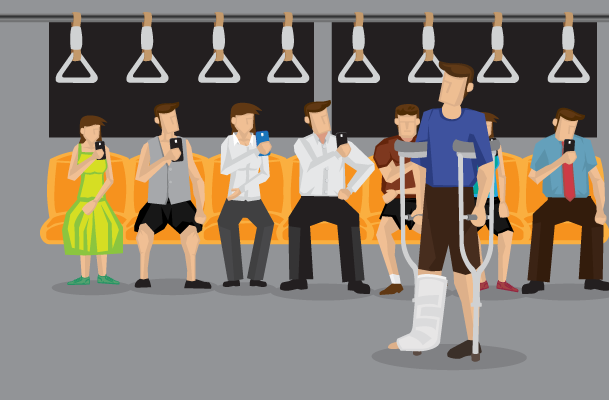How Can I Help? In Times of Need, People Just Want to Feel Supported

We all have the impulse to catch someone when they fall, but in more ambiguous situations, it can be difficult to determine if someone would welcome our assistance. What if our “help” just makes things worse or offends the person by unintentionally suggesting they couldn’t handle things alone?
These kinds of concerns can prevent us from reaching out to others in times of need, but new research in Psychological Science suggests that, more often than not, recipients of support perceive their helpers far more positively than we might expect.
“Expressers focus relatively more on their competency in providing support rather than fully appreciating the warmth and compassion that expressing support conveys to recipients, providing one possible explanation for their overly pessimistic expectations,” wrote James A. Dungan, David M. Munguia Gomez, and Nicholas Epley (The University of Chicago). “Underestimating the positive impact of expressing support could lead people to miss opportunities to help others more often in daily life.”
Through a series of four studies, the researchers took a closer look at how expressers and recipients of support perceive assistance differently.
The first study of 100 participants focused on the relationship between expressers’ perceptions (how their assistance would be received) and their willingness to extend support. Each expresser was asked to imagine sending a supportive message to five people in their life who needed assistance. The more positively participants believed their message would be received, the more likely they were to report wanting to send the message for real.
Related content
-

Bystander Behavior [retired as of July 2023]
Foundational research has shown that people avoid helping someone in an emergency when other witnesses are present. What makes us accept or skirt responsibility? Visit Page
-

Compassion
A collection of studies shows that compassion gets stronger with training and this training can even change brain function. Visit Page
-

Giving
Learn about the mechanisms underlying our generous motivations and behaviors. Visit Page
Dungan and colleagues then extended these findings by tasking 120 college students with actually sending a supportive message, accompanied by an explanation of the experiment and a survey link, to someone attending university with them. Fifty recipients responded to the emails—though it is unclear whether the remaining 58% of recipients chose not to respond or did not receive the message, the researchers noted.
After sending or receiving the message, expresser–recipient pairs then reported how warm, competent, and positive they perceived the message to be. Recipients felt that the message was less awkward and more warm and competent than expressers expected. This was true both on average and when comparing responses within individual expresser–recipient pairs, regardless of how close the expresser reported being to the recipient.
The researchers found further support for this expresser–recipient mismatch in a study of 50 pairs of participants who gave or received support in person and in a survey of 300 online participants about their perceptions of hypothetically giving or receiving support.
When participants received emotional support face-to-face, they also perceived it as more warm, competent, and positive than expressers expected. Furthermore, although most hypothetical expressers who completed the survey reported that their first concern after extending support would be their competence, most would-be recipients reported focusing first on the expressers’ warmth.
“Our experiments suggest that undervaluing the positive impact of expressing support could create a psychological barrier to expressing it more often,” Dungan and colleagues explained. “Withholding support because of misguided fears of saying or doing the wrong thing could leave both recipients and expressers of support less happy than they could be.”
Recognizing this mismatch could encourage people to reach out to others in need more often, the researchers added.
Feedback on this article? Email apsobserver@psychologicalscience.org or login to comment.
Reference
Dungan, J. A., Munguia Gomez, D. M., & Epley, N. (2022). Too reluctant to reach out: Receiving social support is more positive than expressers expect. Psychological Science. https://doi.org/10.1177/09567976221082942





APS regularly opens certain online articles for discussion on our website. Effective February 2021, you must be a logged-in APS member to post comments. By posting a comment, you agree to our Community Guidelines and the display of your profile information, including your name and affiliation. Any opinions, findings, conclusions, or recommendations present in article comments are those of the writers and do not necessarily reflect the views of APS or the article’s author. For more information, please see our Community Guidelines.
Please login with your APS account to comment.